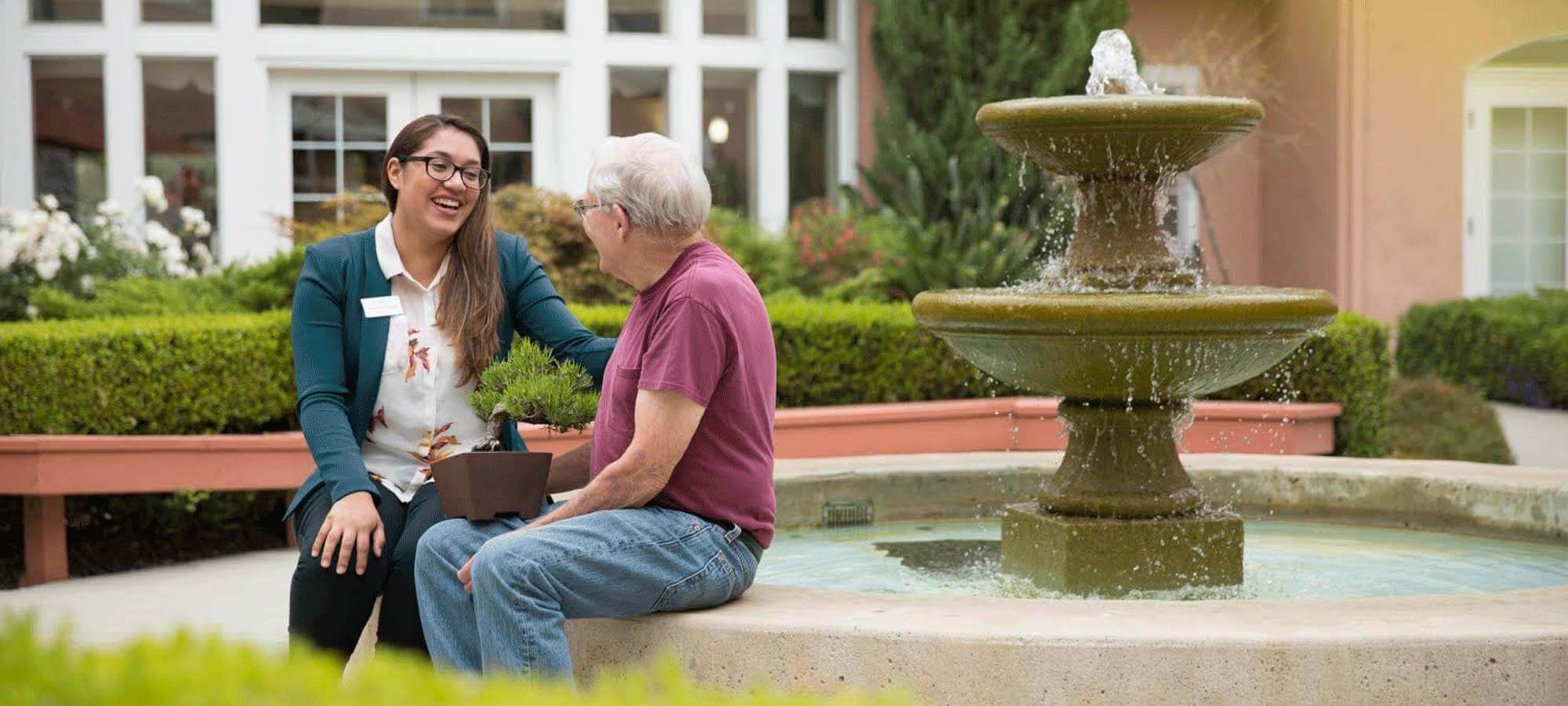The Sanctuary Charlotte Senior Care Residence: Compassionate Services
The Sanctuary Charlotte Senior Care Residence: Compassionate Services
Blog Article
Essential Guide to Memory Care Services in Assisted Living Areas
Browsing the landscape of memory treatment services within assisted living neighborhoods needs a nuanced understanding of the specialized programs and support group available. As people age, memory-related difficulties can pose substantial difficulties to day-to-day living, making it important to have actually accessibility to tailored care. From personnel training and credentials to healing activities and environmental adjustments, the variety of solutions given can greatly impact the wellness and lifestyle for locals. By checking out the ins and outs of these crucial elements, a much deeper understanding right into the all natural strategy of memory care solutions in assisted living communities arises, clarifying the detailed assistance readily available to those in requirement.
Specialized Memory Care Programs
Specialized memory treatment programs within assisted living communities play a vital role in providing tailored support for individuals with cognitive disability. These programs are especially created to satisfy the distinct needs of citizens dealing with memory-related difficulties such as Alzheimer's and mental deterioration. By concentrating on customized care plans, specialized personnel training, and developing a revitalizing and safe atmosphere, these programs intend to enhance the high quality of life for residents while promoting independence to the maximum extent feasible.
The core elements of specialized memory treatment programs frequently consist of organized everyday routines, memory-enhancing tasks, and sensory stimulation to engage locals cognitively and mentally. In addition, these programs commonly use specialized eating alternatives, medication monitoring assistance, and assistance with activities of daily living to make sure detailed treatment for citizens with varying degrees of cognitive decrease.
Staff Training and Qualifications
Reliable staff training and qualifications are necessary parts of guaranteeing top notch take care of citizens in memory treatment programs within assisted living communities. Employee operating in memory care devices need to undergo specialized training to recognize the unique demands of locals with mental deterioration and Alzheimer's illness. Training ought to cover subjects such as communication techniques, behavior administration techniques, and person-centered treatment techniques. Staff ought to additionally receive education on dementia-related actions, medication monitoring, and emergency protocols to handle numerous situations properly.

Environment Adjustments for Memory Care
To guarantee a detailed strategy to care that addresses both personnel expertise and physical environments, the environment in memory care systems must be attentively adjusted to fulfill the special requirements of locals with mental deterioration and Alzheimer's disease. The Sanctuary assisted living in charlotte nc. Developing a dementia-friendly atmosphere entails making details adjustments that can aid homeowners feel secure, comfortable, and engaged
One vital aspect of atmosphere adjustments is making sure security and safety and security. This consists of implementing actions such as protected leaves and access to avoid residents from straying, setting up hand rails and get hold of bars for support, and reducing journey risks throughout the mountain ridge assisted living space. Furthermore, utilizing color-coded signs, clear signage, and acquainted things can help citizens navigate their environments more quickly.
Moreover, producing a relaxing and homey ambience is important for promoting health. This can be accomplished with making use of all-natural lighting, comforting shades, comfortable furnishings, and familiar decors. Creating spaces that are simple to navigate and advertising self-reliance through attributes like memory boxes and aesthetic pointers can likewise improve the top quality of life for residents with memory problems. By implementing these atmosphere adjustments, aided living neighborhoods can give a helpful and nurturing setting for individuals with dementia and Alzheimer's disease.
Therapeutic Tasks and Involvement
Interaction in purposeful restorative activities plays an essential duty in improving the health and cognitive feature of people living in memory treatment systems. These activities are thoroughly developed to promote memory, cognition, and social interaction amongst homeowners. Healing activities can range from sensory excitement workouts to reminiscence treatment sessions, art and songs therapy, exercise programs, and cognitive games. Each task is customized to meet the specific needs and abilities of the homeowners, advertising a feeling of success and self-respect.
Involvement in healing tasks not just aids people preserve cognitive abilities but also uses emotional and social advantages. Participating in these tasks can lower feelings of anxiousness, anxiety, and seclusion commonly experienced by individuals with memory impairments. In addition, these activities supply an organized regular and a sense of function for citizens, adding to a total improved lifestyle.
Memory care areas often have actually committed team learnt assisting in therapeutic tasks, making certain that residents receive personalized and significant engagement that sustains their cognitive and emotional well-being.
Communication Techniques and Assistance
In helping with purposeful communications and promoting alternative wellness for people in memory care systems, efficient interaction approaches and support play an essential function. Interaction in memory care includes understanding residents' distinct requirements, choices, and capabilities. Caregivers should utilize basic and clear language, preserve eye contact, and deal confidence to promote understanding and depend on. Non-verbal hints such as faces and body movement can also enhance interaction with homeowners that may have trouble sharing themselves vocally.
Supporting interaction in memory treatment setups extends beyond spoken interactions. In addition, caregivers educated in communication strategies for mental deterioration treatment can browse difficulties successfully and react empathetically to locals' actions and feelings.
Conclusion
Finally, memory care services in assisted living neighborhoods play a crucial function in supplying specialized treatment and support for individuals with cognitive impairments. Through customized programs, qualified team, adapted settings, therapeutic tasks, and efficient communication methods, these solutions aim to enhance the lifestyle for locals with memory problems. By addressing the unique needs of these people, memory treatment solutions add to producing a helpful and risk-free atmosphere that promotes general wellness and comfort.
Effective team training and credentials are crucial components of guaranteeing high-grade care for locals in memory treatment programs Get More Information within assisted living communities - The Sanctuary assisted living in charlotte nc.Credentials for personnel in memory treatment programs normally consist of qualifications in mental deterioration care the original source or Alzheimer's treatment, along with appropriate experience in working with people with memory disabilities. Continuous training and expert growth chances are crucial to make certain that team remain upgraded on the most current ideal methods in memory care and proceed to offer high-quality assistance to locals with cognitive obstacles. By investing in team training and certifications, aided living communities can boost the overall health and quality of life for citizens in memory treatment programs

Report this page